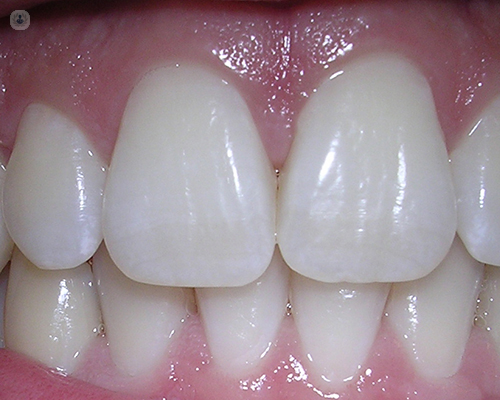What are the pros and cons of dental veneers?
Autore:Dental veneers are a permanent facing of porcelain that is bonded to the front of your teeth. They have a life expectancy of 10-15 years and can be used to correct worn or discoloured teeth as well as change the shape and arrangement of the teeth. A detailed examination will allow your dentist to analyse your smile and prescribe a detailed 3D 'wax-up' of your new smile. This is used to allow both a 'visual diagnostic try' that involves no tooth preparation, and a trial smile after any necessary tooth preparation is completed. This trial smile can be adjusted by reshaping, or addition until the exact desired shape and proportions are created.

When would dental veneers be needed?
They are used to mainly change the shape and arrangement of teeth as well as correct worn and discoloured teeth. Whilst they can be done using a plastic material this can be very challenging and so generally will be made of porcelain, which has been fabricated in a dental laboratory. These will generally have a longer lifespan than plastic composite materials.
What are the pros of dental veneers?
Porcelain veneers will last the longest of any material and will not discolour or stain. Done correctly they can often involve little or no tooth preparation similar to stated advantages of composite veneer. They can be very white but this is often quite artificial. They can also be fabricated to look beautiful and natural and so do not always need to look artificial.
What are the cons?
However well they are done they will have a lifespan and you may need replacement veneers. As long as they are bonded to enamel (the strongest and longest lasting bond) this will be some 10-15 years. Bonding to enamel is achieved via additional wax up and use of a trial smile to ensure that this additive wax-up is not too bulky. If it is, then some degree of orthodontic pre-alignment is most sensible.
How much do dental veneers cost?
Generally in the region of about £1000 per tooth. This reflects the skill of the dentist in providing an accurate diagnosis that will allow the correct treatment plan wax-up to be undertaken. This should also allow for minimal tooth preparation (it is easier and quicker to cut away tooth than to plan for minimal tooth preparation) as well as allow for a master ceramist to fabricate the porcelain exactly as the dentist has created them from the initial diagnostic wax-up and from any shape modification done on the temporary trial smile.
If you are considering dental veneers, book now with one of our dentists.


